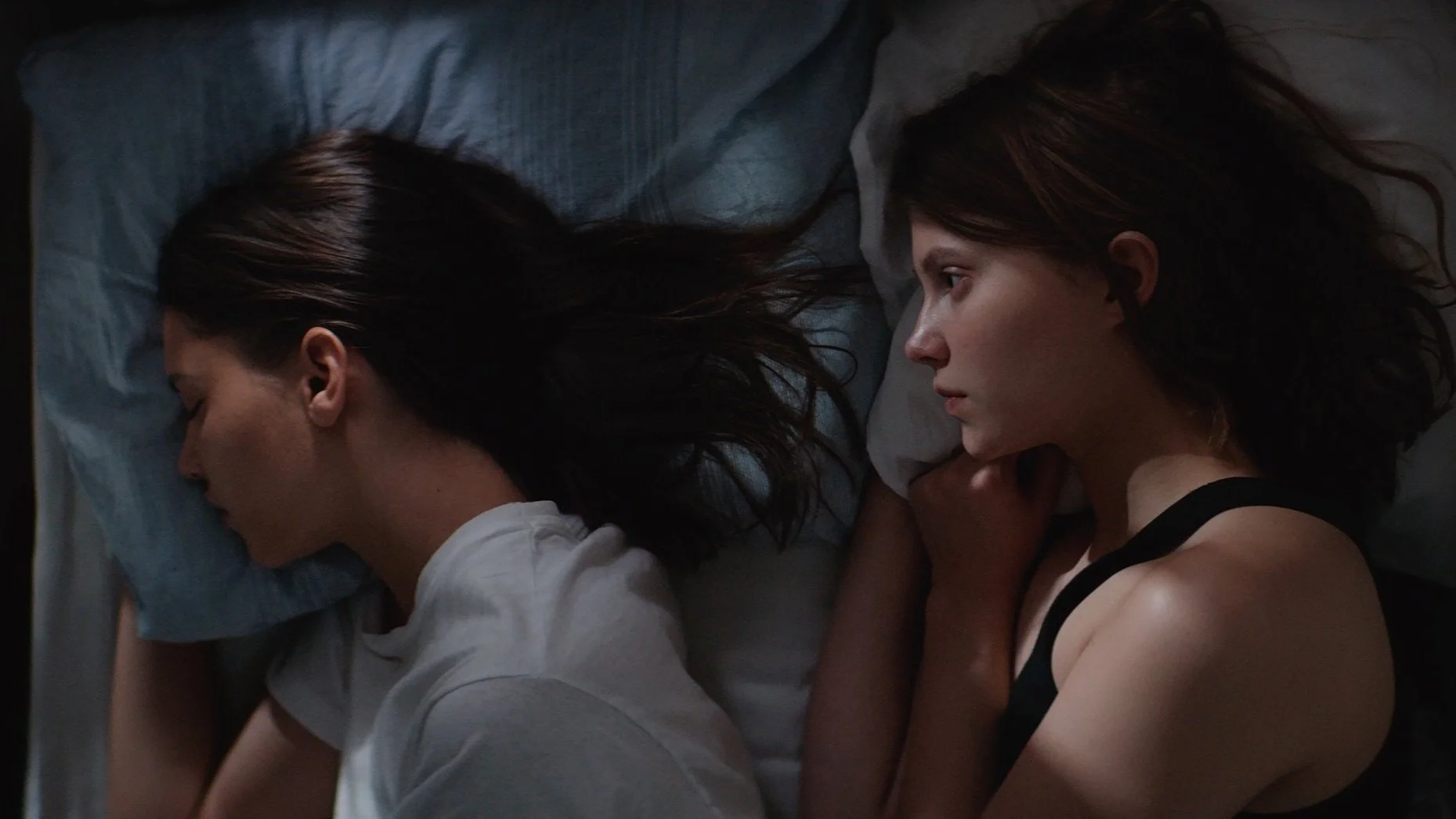Thelma
A well-acted tale that disturbs but not necessarily in the way intended.
Kaya Wilkins and Eili Harboe
The Norwegian director Joachim Trier, who regularly provides his own screenplays with Eskil Vogt, has had remarkable success. This is evidenced by the fact that all four of his feature films to date have been distributed here although only one, 2015's Louder Than Bombs, was made in English. Thelma, the latest of the four, has understandably been described as something of a departure in that supernatural elements feature in it for the first time. However, that is not the aspect of Thelma which by its close left me feeling alienated.
Initially all the signs are very favourable. Thelma begins with an extremely telling dramatic scene which involves a young girl and her father, a preface which intrigues in its own right and also promises further unsettling developments. We then move ahead some years to find this girl, Thelma (Eili Harboe), at college in Oslo. It at once becomes clear that she has over-protective, strongly religious parents (Henrik Rafaelsen and Ellen Dorrit Petersen) and that, having now left home, she is opening up to new experiences. Tentative experiments with drink and drugs follow, but what she finds most unsettling in view of her upbringing is the realisation that she is becoming strongly attracted to another student and one of her own sex, Anja (Kaya Wilkins).
Enhanced by fine photography by Jakob Ihre, a good use of music and direction that initially finds Joachim Trier at his best (albeit using the 'Scope format for the first time), the film starts out as a persuasively written naturalistic drama. This enables the players and especially the two young female leads to bring real conviction to the piece. That it then moves into the realm of the supernatural might have worked, as it did in Tomas Alfredson's Let the Right One In (2008). Here that development involves Thelma becoming subject to seizures and then realising that she is possessed of an inner power that, expressing her secret wishes, can make people disappear or, indeed, die.
Although it could just about be claimed that all this is a metaphor for adolescent intensity and confusion, Thelma comes across as a work to be accepted on its own surface terms which occasionally bring it close to the horror genre but mainly require us to see it as akin to a tale of possession. Given that Thelma's parents are drawn unsympathetically, it would seem natural for Thelma to be the figure about whom we care. To achieve that she would have to be portrayed as a tragic victim of powers that she never asked for. However, Trier and Vogt seem instead to be content just to go with the flow. In the process a certain pretentiousness and confusion enter in and one is left utterly unsure what one is meant to feel about Thelma. Earlier her medical condition has been diagnosed as involving psychogenic non-epileptic seizures but the film starts out with a written warning of scenes featuring strong flashing lights dangerous to those with epilepsy. Both this angle and the male take on lesbianism, linked as it is with these seizures, carry a sense of exploitative filmmaking however different the intention may have been. Given the strong promise of the first hour, I was surprised and dismayed that the film aroused so much dissatisfaction and even hostility in me.
MANSEL STIMPSON
Cast: Eili Harboe, Kaya Wilkins, Henrik Rafaelsen, Ellen Dorrit Petersen.
Dir Joachim Trier, Pro Thomas Robsahm, Screenplay Eskil Vogt and Joachim Trier, Ph Jakob Ihre, Pro Des Roger Rosenberg, Ed Olivier Bugge Coutté, Music Ola Fløttum, Costumes Ellen Dæhli Ystehede.
Motlys/Memento Films/Film i Väst/Le Pacte/Filmpool Nord/Snowglobe-Thunderbird Releasing.
116 mins. Norway/Sweden/Denmark/France. 2017. Rel: 3 November 2017. Cert. 15.


